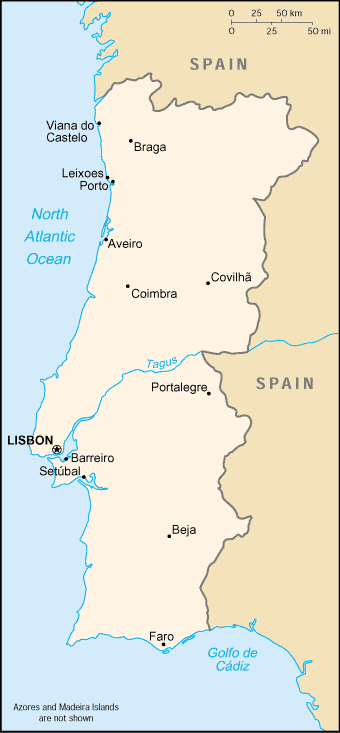World >
Europe >
Portugal
Introduction:
|
Following its heyday as a world power during the 15th and 16th centuries, Portugal lost much of its wealth and status with the destruction of Lisbon in a 1755 earthquake, occupation during the Napoleonic Wars, and the independence in 1822 of Brazil as a colony. A 1910 revolution deposed the monarchy; for most of the next six decades, repressive governments ran the country. In 1974, a left-wing military coup installed broad democratic reforms. The following year, Portugal granted independence to all of its African colonies. Portugal entered the EC (now the EU) in 1986.
|
|
Official name: |
Portuguese Republic
|
|
Capital: |
Lisbon |
|
Government type: |
parliamentary democracy |
|
Population: |
10,102,022 (July 2003 est.) |
|
Languages: |
Portuguese (official), Mirandese (official - but locally used) |
|
Official Currency: |
euro (EUR)
note: on 1 January 1999, the European Monetary Union introduced the euro as a common currency to be used by financial institutions of member countries; on 1 January 2002, the euro became the sole currency for everyday transactions within the member countries |
|
Currency code: |
EUR |
|
Area: |
total: 92,391 sq km
land: 91,951 sq km
note: includes Azores and Madeira Islands
water: 440 sq km |
|
Climate: |
maritime temperate; cool and rainy in north, warmer and drier in south |
|
Map of Portugal
|
